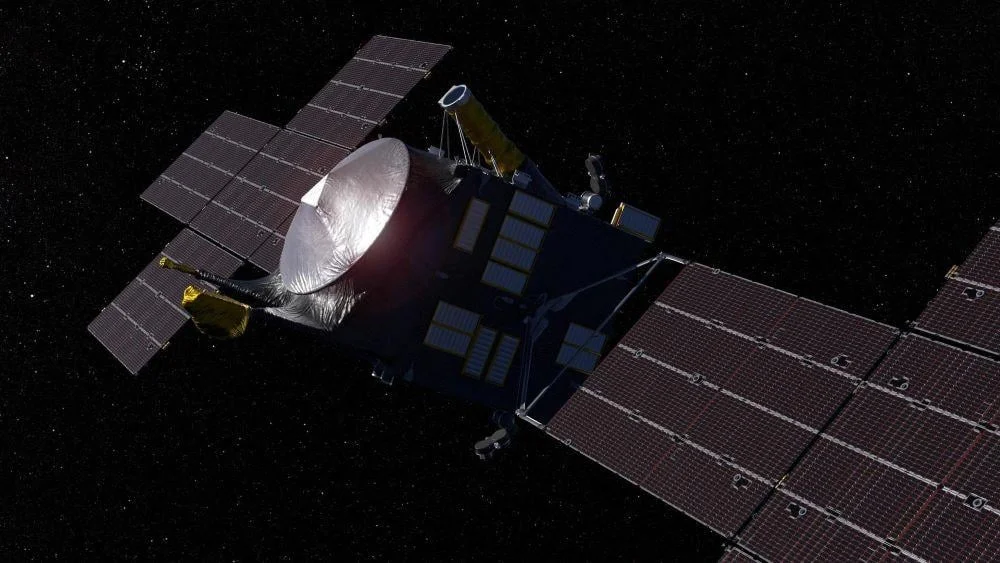
NASA’s Psyche Mission Bounces Back: Backup Fuel Line Activated for Asteroid Voyage
NASA's Psyche mission, a groundbreaking endeavor to explore a metal-rich asteroid of the same name, has encountered and swiftly overcome a hurdle. A pressure drop in the spacecraft's propellant line, which feeds crucial xenon propellant to its electric thrusters, threatened to delay the mission's progress. However, NASA engineers have successfully switched to a backup fuel line, ensuring the spacecraft remains on track for its August 2029 rendezvous with the asteroid Psyche.

The initial problem arose in early April when pressure dipped unexpectedly in the primary propellant line. After a thorough investigation, NASA determined that a valve component was malfunctioning, obstructing the flow of xenon to the thrusters. This valve, designed to open and close to regulate propellant flow, was no longer functioning as expected.
Facing this challenge head-on, the Psyche mission team swiftly implemented a pre-planned solution: activating the spacecraft's redundant backup propellant line. This backup line, identical to the primary, was designed precisely for such contingencies. NASA stated on May 28th that the switch to the backup line was successful and that the thrusters would restart by mid-June. To prevent recurrence, engineers plan to keep the backup line's valve permanently open, ensuring a consistent flow of propellant.
"Engineers plan to keep the backup line’s valve in the open position to ensure propellant flow and avoid any potential mechanical issues in the future," NASA stated, highlighting the proactive measures taken to safeguard the mission.
The Psyche spacecraft relies on these electric thrusters, powered by two large solar arrays, to ionize and expel xenon gas, gently propelling it through space. This gradual acceleration is vital for the long journey ahead.
Launched in October 2023 aboard a Falcon Heavy rocket from NASA's Kennedy Space Center, the $1.2 billion Discovery-class mission has already traveled over 628 million miles (1 billion kilometers). A Mars gravity assist in May 2026 will further accelerate the spacecraft towards its ultimate destination. The mission aims to study the unique, metal-rich asteroid Psyche, believed to be the exposed core of a protoplanet.
Despite earlier developmental challenges that delayed the launch by over a year and increased costs, the successful activation of the backup fuel line demonstrates the resilience and ingenuity of the NASA team. The mission remains on schedule to reach the asteroid Psyche in August 2029.
What does this swift recovery say about NASA's preparedness for deep-space missions? Share your thoughts and predictions for the Psyche mission in the comments below!